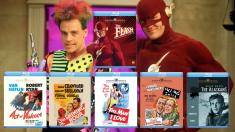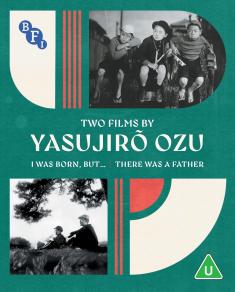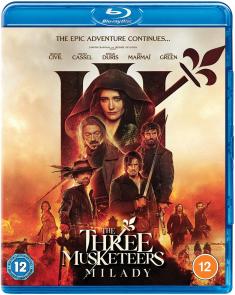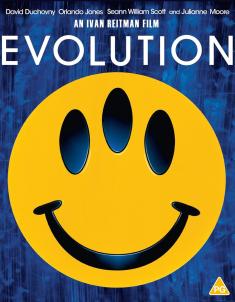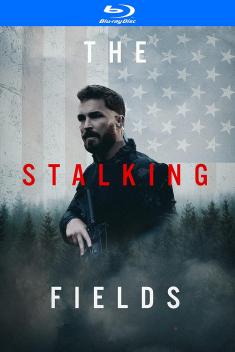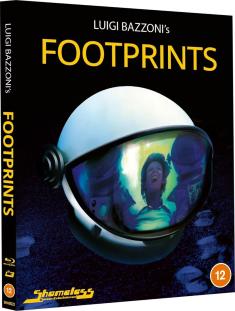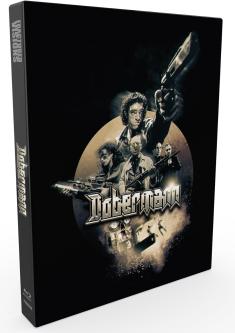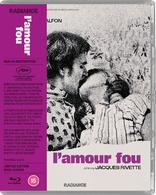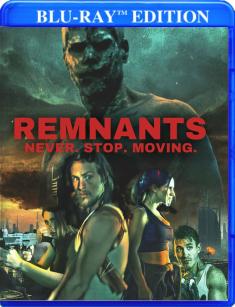Cinderella Man
Overview -Cinderella Man is inspired by the life of legendary athlete Jim Braddock, a once-promising light heavyweight boxer forced into retirement after a string of losses in the ring. As the nation enters the darkest years of the Great Depression, Braddock accepts a string of dead-end jobs to support his wife, Mae, and their children, while never totally abandoning his dream of boxing again.
Storyline: Our Reviewer's Take
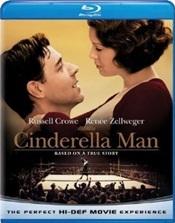
"You will love 'Cinderella Man!'" Or so blared the incessant media ads early last summer, when Universal put the 'Cinderella Man' marketing campaign into full-tilt swagger mode. But no, America did not love 'Cinderella Man,' and though most critics swooned, the film went quickly down for the count at the box office, barely scrapping past $60 million. For a film that should have been a sure-fire re-teaming of 'A Beautiful Mind' Oscar champions Ron Howard and star Russell Crowe, it was one mean sucker punch indeed.
On paper, the real-life story of Depression-era boxer James J. Braddock should have been a 'Rocky' for the new millennium -- his inspiring tale is so perfectly scripted it feels like a piece of well-worn fiction. After achieving great success in the ring in the late 1920s, the Depression swiftly reduced Braddock (Crowe) to a dock worker and left his wife Mae (Renee Zellweger) and four kids scraping by with barely enough to keep the bills paid and food on the table. After a year out of the ring for over a year, Braddock is finely given one last chance to fight by his ex-manager Joe Gould (Paul Giamatti). To the surprise of the nation, he becomes the ultimate underdog, riding a wave of success that puts him and his family back in the good life. By the time of his climactic fight with Max Baer (Craig Bierko), who had already become legendary for killing two men in the ring, Braddock would become a national hero. In the worst of times, he gave America something to believe in.
I'd say the poor commercial reception that greeted 'Cinderella Man' was unfortunate, if it was not such a calculated film. Howard has always treaded a fine line in his filmmaking between sentiment and schmaltz, and for me, with 'Cinderella Man' he stumbled over to the wrong side. The movie is so precise in its construction it feels manufactured -- all the squalor of the Great Depression is infused with the kind of desaturated movie glow that can only come with a $100 million Hollywood budget, and the actors speak in the kind of grand tongues and big gestures that make you think they were counting Oscars nominations after every take.
The movie also doesn't really work as a boxing drama. The scenes in the ring are almost always played as montage, with the requisite shots of crunchy punches quickly intercut with flashbulbs going off and the crowd cheering -- I almost expected an image of Indiana Jones' bi-plane to be superimposed over the screen at any moment. And oddly, the film's big boxing climax dulls its narrative drive when it should be rousing us to our feet, primarily because Zellweger's otherwise feisty Mae is regulated to the sidelines -- "long suffering" does not do this woman justice. She becomes so symbolic of what Braddock is fighting for instead of integral to the storyline that she ceases to become a character at all. Compare that to the Rocky-Adrian romance in 'Rocky,' where the film earned every tear of its climax because we were so emotionally invested in the relationship between its two characters.
'Cinderella Man' does have some affecting moments. Crowe admirably underplays most of the time -- I especially liked his restraint in the quietly moving scene early in the film, when he must return to his former bosses to beg for a handout. Crowe and Zellweger's relationship also felt real in the first half of the movie, and it's hard not to root for this family to succeed. But best of all is Giamatti, who at long last earned an Oscar nom for the role, and deserved it. He's irascible but likeable, a sort of puppy-dog version of Burgess Meredith in 'Rocky,' and the bond between Gould and Braddock beats as the real heart of the film.
There is a fine line between Oscar worthy and mere Oscar baiting, and I'm still not sure where ultimately 'Cinderella Man' falls (though I wasn't that big a fan of 'A Beautiful Mind' either, and that snagged Best Picture, so what do I know?) Perhaps only time will tell [as] 'Cinderella Man' does have an ever-growing legion of fans. I just ended up admiring its efficiency more than warming up to its emotion. But if you are a fan of Howard's melodramatic style — and there is no doubt, this film is enjoyable — you might just love 'Cinderella Man.'
The Blu-ray: Vital Disc Stats
Universal Studios Home Entertainment brings 'Cinderella Man' to the Blu-ray ring on a Region Free, BD50 disc and housed in the standard blue keepcase. At start-up, the disc goes straight to the main menu with the customary selection and full-motion clips playing in the background.
Video Review
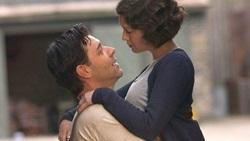
For this Blu-ray edition of 'Cinderella Man,' Universal Studios appears to have used the same 1080p/VC-1 encode (2.35:1) seen on the 2006 HD DVD release. Only now, five years into the high-def format and compared to over a thousand other Blu-ray titles, the picture quality of the Ron Howard biopic falls on the average side of things. Still, it's a satisfying enough presentation for fans.
Fine object and textural details are attractive with strong definition throughout, yet there's not much to the video that truly impresses. A very light veneer of grain is ever present, giving the image an appreciable film-like quality and showing a good depth of field. Contrast is well-balanced with sharp whites, but the overall transfer feels somewhat bland and plain. The photography and color palette veers towards the warmer gamut — the orange and teal type favored in many movies over the past decade. Nevertheless, primaries are bright and accurate. Blacks could be deeper and richer, appearing a tad dull in several spots, and shadows often overwhelm the background info during poorly-lit sequences. In the end, 'Cinderella Man' can hold its own the first few rounds on Blu-ray, but ultimately fails to deliver that knockout punch to win spectators over.
Audio Review
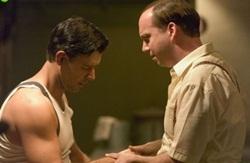
Universal also offers the sports drama with an excellent DTS-HD Master Audio soundtrack that's only slightly better than its Dolby Digital Plus counterpart. Most impressive, and as expected, are the boxing matches, occupying the entire rear soundscape with the cheers and applause of the audience. Directional cues and effects are convincing at generating a 360-degree soundfield, pulling the viewer right into the middle of the action. Low bass is highly-responsive and effective, giving each punch a commanding and authoritative force. Of course, much of this is until the second half of the movie.
A majority of the design is a front-heavy mix where a warm and spacious soundstage delivers well-prioritized vocals, which are never drowned out by the excitement of the bouts. Thomas Newman's subtle but elegant score enjoys a welcoming presence and good fidelity detail. Dynamic range is also broad and far-reaching, maintaining a lossless track that's affable and welcoming from beginning to end. All in all, the high-rez audio for 'Cinderella Man' puts on a great performance that goes toe-to-toe with most other Blu-ray titles.
Special Features
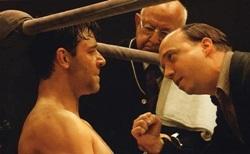
Universal Studios ports over the same wealth of supplements as the 2006 HD DVD release, which is good because it's rather extensive. Still, something new to make previous owners comfortable with their purchase would have been nice.
- Audio Commentaries — Three interesting and quite informative tracks kick things off for fans. First, director Ron Howard provides a strong commentary that gives viewers an opportunity on hearing his creative thinking and the challenges he faced in making a biopic. Silence is never much of an issue as the filmmaker goes down the list of comments, from the casting, the photography, what attracted him to the story, the overall production and thoughts of the final product. Out of the three tracks, this is definitely the better one.
Second, we have a blander conversation with screenwriter Akiva Goldsman, who was brought into the production to rewrite the original script. There is a great deal of silence to be found here along with some comments of significance, mostly revolving around the changes for making a straightforward biopic. Goldsman also admits to several alterations that provide a more dramatic impact, and he gives way to several praises of the film and the director. It not an altogether bad audio track, but it can be quite boring as well.
The final commentary is with the original screenwriter Cliff Hollingsworth, which is only slightly better than its predecessor. His focus is understandably more on the story and the attempt at capturing the life of a real person with words on a page. He also remarks on having to revise and tweak certain events for the sake of dramatic storytelling. The track places more attention on accuracy and history, but if one is an aspiring screenwriter, it might also provide a decent listen. - The Fight Card (SD, 23 min) — This is an in-depth discussion on casting the roles, the work actors had to put forth in their respective parts and the aim of all involved in bringing as honest a portrayal as they possibly could.
- For the Record: A History in Boxing (SD, 7) — A look at the boxing scenes in the movie and how they compare with reality, and it features consultants Angelo Dundee who worked personally with Crowe and trainer Wayne Gordon who designed a strict exercise regimen.
- Ringside Seats (SD, 9 min) — This is a very interesting discussion between director Ron Howard, producer Brian Grazer, screenwriter Akiva Goldsman and novelist Norman Mailer analyzing original boxing footage of the Baer vs. Braddock match.
- The Man, the Movie, the Legend: A Filmmaking Journey (SD, 14 min) — Howard, Grazer, Goldsman and Crowe talk extensively about how everyone came together to make the film. The conversation is also joined by a few comments from Penny Marshall and her thoughts on the script and movie.
- Jim Braddock: The Friends & Family Behind the Legend (SD, 11 min) — An emotional and heartfelt talk with the people who knew Braddock best and a few comments from the champion himself via vintage interviews.
- Pre-Fight Preparations (SD, 25 min) — A four-part look at the film's production. It starts with the origins of the story and a quick history of the original screenplay ("Focus on Script"). Then it moves into the design work and shooting locations ("Creating the Reality"), and a quick chat on the boxing choreography ("Russell's Transformation"). It finishes with a revealing talk about how filmmakers filled so many stadium seats ("Inflatable People").
- Lights, Camera, Action (SD, 21 min) — An entertaining piece that shows viewers the amount of work that went into filming the boxing bouts. Conversations range from experimental footage, camera tests, the choreography, background on specific matches, and the editing. It's a great short, especially for aspiring filmmakers that can learn quite a bit from it.
- Russell Crowe's Personal Journey (SD, 28 min) — Pieced together from various video footage, mostly recorded by Russell Crowe, the actor talks about his experience of becoming James J. Braddock.
- Braddock vs. Baer Fight Footage (SD, 32 min) — For boxing fans, like myself, this is actually the highlight of the entire collection. Edited to shorten the 15-round match, the original footage is an awesome treat to watch.
- The Sound of the Bell (SD, 6 min) — Another short piece that takes a closer look at the music of Thomas Newman.
- Music Featurette (SD, 2 min) — Composer Thomas Newman adds a few more tidbits about scoring the film.
- The Human Face of the Depression (SD, 6 min) — Director Ron Howard talks about his interest on the Great Depression and later joined by producer Brian Grazer and screenwriter Akiva Goldsman to talk about representing a major historical event as accurately as possible.
- Photo Montage (SD, 3 min) — A gallery of production stills mixed with a few full-motion clips, soundbites and the musical score.
- Kodak Gallery (SD, 2 min) — An extended promo for the Kodak company and products while also showing stills from the film.
- Deleted Scenes (SD) — With optional commentary by the director, this is a large collection of sequences that did not make it to the final cut. Surprisingly, there are somewhat interesting to watch, but understandably removed for the sake of runtime.
Final Thoughts
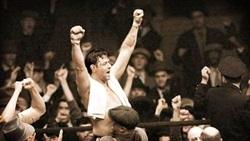
With tremendously beautiful production value and an inspiring story on the life of James J. Braddock, Ron Howard creates a fine and efficient biopic with the popular 'Cinderella Man.' The sports drama delivers great entertainment as it is well-made with strong performances, but it also falls a bit on the sappy side, trying to pull on the heartstrings with somewhat of a heavy hand. The Blu-ray comes with the same audio and video presentation as the previous HD DVD release, but it really doesn't compare with other catalog titles with better picture quality. Supplements are also identical, making this package a worthwhile recommendation for those who didn't purchase the high-def release back in 2006.
